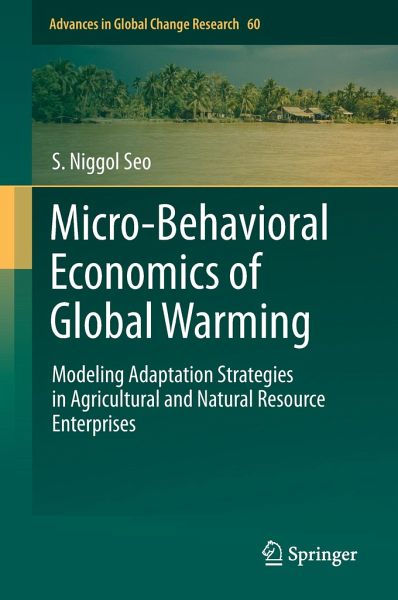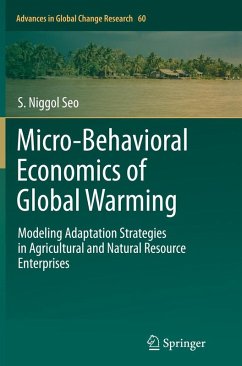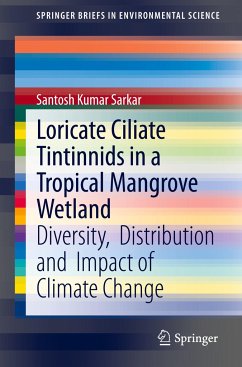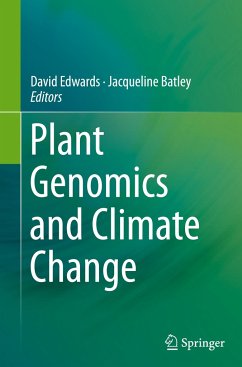
Micro-Behavioral Economics of Global Warming
Modeling Adaptation Strategies in Agricultural and Natural Resource Enterprises
Versandkostenfrei!
Versandfertig in 6-10 Tagen
38,99 €
inkl. MwSt.
Weitere Ausgaben:

PAYBACK Punkte
19 °P sammeln!
This book presents a foundation for studying the micro-behavioral economics of global warming. The author develops an empirical model, named the Geographically-scaled Micro econometric model of Adapting Portfolios (G-MAP) in response to climatic changes and risks. The G-MAP model is applied to observed decisions of agricultural and natural resource enterprises in Sub-Saharan Africa and South America. The author describes the five applications of the model: the G-MAP animal species, the G-MAP agricultural systems, the G-MAP natural resource enterprises, the G-MAP climate risk, and the G-MAP pub...
This book presents a foundation for studying the micro-behavioral economics of global warming. The author develops an empirical model, named the Geographically-scaled Micro econometric model of Adapting Portfolios (G-MAP) in response to climatic changes and risks. The G-MAP model is applied to observed decisions of agricultural and natural resource enterprises in Sub-Saharan Africa and South America. The author describes the five applications of the model: the G-MAP animal species, the G-MAP agricultural systems, the G-MAP natural resource enterprises, the G-MAP climate risk, and the G-MAP public adaptations.
The micro-behavioral economics of global warming and the G-MAP models are evaluated against the three alternative modeling traditions: The first is the Agro-Economic Models (AEM) based on crop simulations of selected crops under elevated CO2 conditions; The second is a family of econometric studies of grain yield changes caused by yearly weather fluctuations; The third is the Agro-Ecological Zone (AEZ) method hinged crucially on the AEZ classifications of ecosystems.
The author offers a refreshing look at the traditional economics of global warming, unraveling a broad array of adaptation strategies adopted by managers of agricultural and natural resource enterprises in Sub-Saharan Africa and South America. The book demonstrates that the micro-behavioral economics dynamically integrates multiple disciplines in a cohesive way - including economics, psychology, climate science, ecosystem studies, agronomy and animal science - into the decision-making framework of an individual agent. The G-MAP models provide a guide map of adaptation strategies for the humanity's enduring journey of battling global climatic changes in this century and beyond.
The micro-behavioral economics of global warming and the G-MAP models are evaluated against the three alternative modeling traditions: The first is the Agro-Economic Models (AEM) based on crop simulations of selected crops under elevated CO2 conditions; The second is a family of econometric studies of grain yield changes caused by yearly weather fluctuations; The third is the Agro-Ecological Zone (AEZ) method hinged crucially on the AEZ classifications of ecosystems.
The author offers a refreshing look at the traditional economics of global warming, unraveling a broad array of adaptation strategies adopted by managers of agricultural and natural resource enterprises in Sub-Saharan Africa and South America. The book demonstrates that the micro-behavioral economics dynamically integrates multiple disciplines in a cohesive way - including economics, psychology, climate science, ecosystem studies, agronomy and animal science - into the decision-making framework of an individual agent. The G-MAP models provide a guide map of adaptation strategies for the humanity's enduring journey of battling global climatic changes in this century and beyond.














